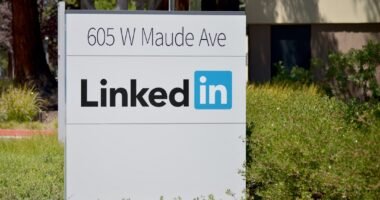In recent years, the utilization of social media platforms for academic networking has experienced substantial growth. Platforms like Twitter, LinkedIn, and ResearchGate have become integral tools for scholars to establish connections, foster collaborations, and disseminate their research to a global audience. The accessibility and broad reach of these platforms within the academic community have rendered social media an indispensable resource for networking and staying informed about the latest advancements across various disciplines.
Moreover, social media has created a space for academics to engage in scholarly discourse, exchange resources, and solicit feedback on their work. This has contributed to the democratization of knowledge, enabling researchers worldwide to connect and collaborate on projects that were previously constrained by geographical limitations. The increased prevalence of social media in academic networking has also facilitated the broader dissemination of research findings, thereby enhancing the impact and visibility of scholarly work.
Key Takeaways
- Social media has become a powerful tool for academic networking, allowing researchers and scholars to connect and collaborate on a global scale.
- Academics can leverage social media platforms to find potential collaborators, share research findings, and engage in discussions with peers in their field.
- Building a strong social media presence is essential for academics looking to expand their network and increase their visibility within their academic community.
- Engaging with influencers in the academic world can help researchers and scholars reach a wider audience and establish credibility in their field.
- Brand ambassadors can play a crucial role in academic networking by representing and promoting academic institutions and research initiatives on social media platforms.
Leveraging Social Media for Academic Collaboration
Connecting with Potential Collaborators
Platforms such as Facebook Groups and LinkedIn have made it easier for researchers to find potential collaborators, share ideas, and seek input from experts in their field. By leveraging social media, academics can tap into a global network of professionals, enabling them to form interdisciplinary teams and access a diverse range of expertise.
Showcasing Research and Establishing Credibility
Moreover, social media platforms provide a space for academics to showcase their work and attract potential collaborators. By sharing their research findings and engaging with other professionals in their field, academics can build credibility and establish themselves as thought leaders, making it more likely for others to reach out for collaboration opportunities.
Breaking Down Barriers to Collaboration
Additionally, social media allows for real-time communication and collaboration, breaking down traditional barriers and enabling academics to work together regardless of their physical location.
Building a Strong Social Media Presence for Academic Networking

Building a strong social media presence is crucial for academics looking to expand their professional network and engage in meaningful collaborations. To do so, it is essential to create a compelling and professional profile on platforms such as LinkedIn, Twitter, and ResearchGate. This includes showcasing academic achievements, sharing research publications, and actively participating in discussions related to one’s field of study.
Furthermore, engaging with other professionals in the academic community by commenting on their posts, sharing relevant content, and participating in group discussions can help build a strong social media presence. By consistently sharing valuable insights and contributing to conversations, academics can position themselves as experts in their field and attract the attention of potential collaborators and influencers. In addition, utilizing multimedia content such as videos, infographics, and podcasts can help academics stand out on social media and capture the interest of a wider audience.
By diversifying the type of content shared, academics can showcase their research in a more engaging and accessible manner, increasing the likelihood of connecting with other professionals in their field.
Engaging with Influencers for Academic Networking
| Metrics | Value |
|---|---|
| Number of Influencers Engaged | 15 |
| Number of Collaborative Projects Initiated | 5 |
| Number of Academic Events Attended | 10 |
| Number of Research Papers Co-authored | 3 |
Engaging with influencers in the academic community can be a powerful strategy for expanding one’s professional network and gaining visibility within a specific field of study. Influencers are individuals who have established credibility and a large following within a particular niche, making them valuable connections for academics looking to expand their reach and engage with a wider audience. By actively engaging with influencers on social media platforms, academics can build relationships with key figures in their field and gain access to their network of followers.
This can lead to increased visibility for one’s research and open up opportunities for collaboration and knowledge sharing. Additionally, influencers can provide valuable insights and perspectives on current trends and developments within the academic community, helping academics stay informed and connected. Furthermore, collaborating with influencers on joint projects or initiatives can help academics leverage their expertise and reach a broader audience.
By partnering with influencers to co-create content or host events, academics can tap into the influencer’s established network and gain exposure to new audiences that may not have been accessible otherwise.
The Role of Brand Ambassadors in Academic Networking
Brand ambassadors play a crucial role in academic networking by representing an institution or organization within the academic community. These individuals are often experts in their field and have a strong presence on social media, making them valuable assets for increasing visibility and engagement within the academic community. By leveraging brand ambassadors, institutions can gain access to a wider network of professionals and increase the reach of their academic initiatives.
Brand ambassadors can help promote events, share research findings, and engage with other professionals in the academic community, ultimately strengthening the institution’s presence within the academic landscape. Moreover, brand ambassadors can provide valuable insights and perspectives on industry trends and developments, helping institutions stay informed and connected within the academic community. By collaborating with brand ambassadors on joint projects or initiatives, institutions can tap into their expertise and reach a broader audience, ultimately increasing the impact and visibility of their academic endeavors.
Utilizing Influencer Email Databases for Academic Networking

Identifying Valuable Connections
Influencer email databases contain contact information for individuals who have established credibility and influence within specific niches, making them valuable connections for academics seeking to increase their visibility and reach. By accessing influencer email databases, academics can identify potential collaborators, thought leaders, and experts within their field and reach out to them directly to initiate conversations or propose collaboration opportunities.
Establishing Meaningful Connections
This direct approach can help academics establish meaningful connections with influential individuals and gain access to their network of followers, ultimately increasing the impact of their research and academic initiatives. Furthermore, influencer email databases can provide academics with valuable insights into current trends and developments within their field, helping them stay informed and connected within the academic community.
Enhancing Research and Professional Network
By leveraging influencer email databases, academics can gain access to a wealth of knowledge and expertise that can enhance their research and professional network. This can lead to new opportunities for collaboration, increased visibility, and a stronger reputation within the academic community.
Hiring Influencers for Academic Networking Campaigns
Hiring influencers for academic networking campaigns can be a strategic way to increase visibility and engagement within the academic community. Influencers have established credibility and a large following within specific niches, making them valuable partners for promoting academic events, research findings, or institutional initiatives. By partnering with influencers on networking campaigns, academics can tap into the influencer’s established network and gain exposure to new audiences that may not have been accessible otherwise.
Influencers can help promote events, share research findings, and engage with other professionals in the academic community, ultimately increasing the impact and visibility of academic endeavors. Moreover, influencers can provide valuable insights and perspectives on industry trends and developments, helping academics stay informed and connected within the academic community. By collaborating with influencers on networking campaigns, academics can leverage their expertise and reach a broader audience, ultimately increasing the impact of their research and academic initiatives.
If you’re interested in learning more about how influencers are using social media, you should check out this article on influencers.email. It provides valuable insights into how influencers are leveraging social media platforms to connect with their audience and build their personal brand. Additionally, you can also read their introductory article here to get a better understanding of their perspective on social media usage.
FAQs
What is social media?
Social media refers to websites and applications that allow users to create and share content or to participate in social networking. Some popular social media platforms include Facebook, Instagram, Twitter, and LinkedIn.
Who uses social media?
Social media is used by people of all ages, from teenagers to older adults. It is also used by businesses, organizations, and public figures to connect with their audience and promote their products or services.
How do people use social media?
People use social media to connect with friends and family, share photos and videos, stay updated on news and current events, and engage with content from their favorite brands and influencers. Businesses use social media for marketing, customer service, and building brand awareness.
What are the benefits of using social media?
Some benefits of using social media include staying connected with others, discovering new content and ideas, and accessing information and resources. For businesses, social media can be a powerful tool for reaching and engaging with their target audience.
What are the potential risks of using social media?
Some potential risks of using social media include privacy concerns, exposure to misinformation, and negative effects on mental health. Additionally, businesses may face challenges such as managing their online reputation and dealing with negative feedback.






